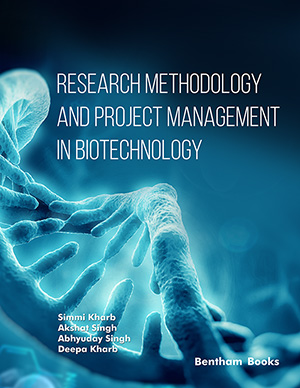
Abstract
Plasmid vaccination is a smart gene delivery application mostly achieved through the utilisation of viral or copolymeric systems as surrogated carriers in micro or nano formulations. A common polymeric protocol for plasmid vaccine formulation, which as somewhat been successful, is via the complexation of the DNA molecules with a cationic polymer, and encapsulating in a vehicular carrier polymer. Even though plasmid vaccination research has not witnessed the much anticipated success, due a number of cellular and physicochemical reasons, application of copolymeric carriers with tight functionalities is a promising strategy to optimally deliver the DNA molecules; in view of the available chemistries and physical properties that could be tuned to enable enhanced targeted delivery, uptake and specific transfection. This also enables the targeting of specific epitopes and antigen presenting cells for the treatment of many pathogenic infections and cancer. This paper provides a brief critical review of the current state of plasmid vaccines formulation and molecular delivery with analysis of performance data obtained from clinical trials.
Keywords: Plasmid, Vaccine, Polymer, Immunology, Clinical Trial.
Current Pharmaceutical Biotechnology
Title:Molecular Delivery of Plasmids for Genetic Vaccination
Volume: 14 Issue: 6
Author(s): Romiza Mazid, Melvin X. Tan and Michael K. Danquah
Affiliation:
Keywords: Plasmid, Vaccine, Polymer, Immunology, Clinical Trial.
Abstract: Plasmid vaccination is a smart gene delivery application mostly achieved through the utilisation of viral or copolymeric systems as surrogated carriers in micro or nano formulations. A common polymeric protocol for plasmid vaccine formulation, which as somewhat been successful, is via the complexation of the DNA molecules with a cationic polymer, and encapsulating in a vehicular carrier polymer. Even though plasmid vaccination research has not witnessed the much anticipated success, due a number of cellular and physicochemical reasons, application of copolymeric carriers with tight functionalities is a promising strategy to optimally deliver the DNA molecules; in view of the available chemistries and physical properties that could be tuned to enable enhanced targeted delivery, uptake and specific transfection. This also enables the targeting of specific epitopes and antigen presenting cells for the treatment of many pathogenic infections and cancer. This paper provides a brief critical review of the current state of plasmid vaccines formulation and molecular delivery with analysis of performance data obtained from clinical trials.
Export Options
About this article
Cite this article as:
Mazid Romiza, Tan X. Melvin and Danquah K. Michael, Molecular Delivery of Plasmids for Genetic Vaccination, Current Pharmaceutical Biotechnology 2013; 14 (6) . https://dx.doi.org/10.2174/138920101131400226
| DOI https://dx.doi.org/10.2174/138920101131400226 |
Print ISSN 1389-2010 |
| Publisher Name Bentham Science Publisher |
Online ISSN 1873-4316 |
Call for Papers in Thematic Issues
Artificial Intelligence in Bioinformatics
Bioinformatics is an interdisciplinary field that analyzes and explores biological data. This field combines biology and information system. Artificial Intelligence (AI) has attracted great attention as it tries to replicate human intelligence. It has become common technology for analyzing and solving complex data and problems and encompasses sub-fields of machine ...read more
Latest Advancements in Biotherapeutics.
The scope of this thematic issue is to comprehensively explore the rapidly evolving landscape of biotherapeutics, emphasizing breakthroughs in precision medicine. Encompassing diverse therapeutic modalities, the issue will delve into the latest developments in monoclonal antibodies, CRISPR/Cas gene editing, CAR-T cell therapies, and innovative drug delivery systems, such as nanoparticle-based ...read more
Machine Learning and Artificial Intelligence for Medical Data Analysis and Human Information Analysis in Healthcare
The intersection of machine learning (ML) and artificial intelligence (AI) with the pharmaceutical industry is revolutionizing traditional paradigms in drug discovery and development. These technologies have introduced innovative approaches to analyzing complex datasets and predicting chemical properties, leading to more efficient identification and optimization of drug candidates. By employing sophisticated ...read more
 47
47
- Author Guidelines
- Graphical Abstracts
- Fabricating and Stating False Information
- Research Misconduct
- Post Publication Discussions and Corrections
- Publishing Ethics and Rectitude
- Increase Visibility of Your Article
- Archiving Policies
- Peer Review Workflow
- Order Your Article Before Print
- Promote Your Article
- Manuscript Transfer Facility
- Editorial Policies
- Allegations from Whistleblowers
Related Articles
-
Structure-activity Relationship Studies of New Marine Anticancer Agents and their Synthetic Analogues
Current Medicinal Chemistry Gene Delivery System: A Developing Arena of Study for the New Era of Medicine
Recent Patents on DNA & Gene Sequences Circulating Levels of Angiogenic Cytokines in Waldenstrom’s Macroglobulinemia: Clinical Correlations
Current Angiogenesis (Discontinued) Endobronchial Tuberculosis in an HIV-positive Case
Current HIV Research Runx1/AML1 is a Guardian of Hematopoietic Stem Cells
Current Cancer Therapy Reviews Curcumin Modulates Glycolytic Metabolism and Inflammatory Cytokines via Nrf 2 in Dalton’s Lymphoma Ascites Cells In Vivo
Anti-Cancer Agents in Medicinal Chemistry Current Constructs and Targets in Clinical Development for Antibody- Based Cancer Therapy
Current Drug Targets Nanoparticles for Cancer Targeting: Current and Future Directions
Current Drug Delivery Structural Characterization, Biological Effects, and Synthetic Studies on Xanthones from Mangosteen (Garcinia mangostana), a Popular Botanical Dietary Supplement
Mini-Reviews in Organic Chemistry Regulatory Mechanisms of Calcineurin Phosphatase Activity
Current Medicinal Chemistry Peroxisome Proliferator-Activated Receptors and their Ligands in Cancer Drug- Resistance: Opportunity or Challenge
Anti-Cancer Agents in Medicinal Chemistry The CCL2/CCR2 Axis in the Pathogenesis of HIV-1 Infection: A New Cellular Target for Therapy?
Current Drug Targets Single-Photon Emission Computed Tomography Tracers for Predicting and Monitoring Cancer Therapy
Current Pharmaceutical Biotechnology HtrA Serine Proteases as Potential Therapeutic Targets in Cancer
Current Cancer Drug Targets Antiproliferative Effect of Novel Aminoacridine-based Compounds
Medicinal Chemistry Cinnamic Acid Derivatives as Inhibitors of Oncogenic Protein Kinases – Structure, Mechanisms and Biomedical Effects#
Current Medicinal Chemistry Cancer Pharmacogenomics: Germline DNA, Tumor DNA, or Both?
Current Pharmacogenomics Biomarker Assessment in Nutritional Modulation of Oxidative Stress-Induced Cancer Development by Lipid-Related Bioactive Molecules
Recent Patents on Anti-Cancer Drug Discovery Delivery Systems for RNA Interference Therapy: Current Technologies and Limitations
Current Gene Therapy Ultrasound-Triggered Immunotherapy for Cancer Treatment: An Update
Current Protein & Peptide Science


























